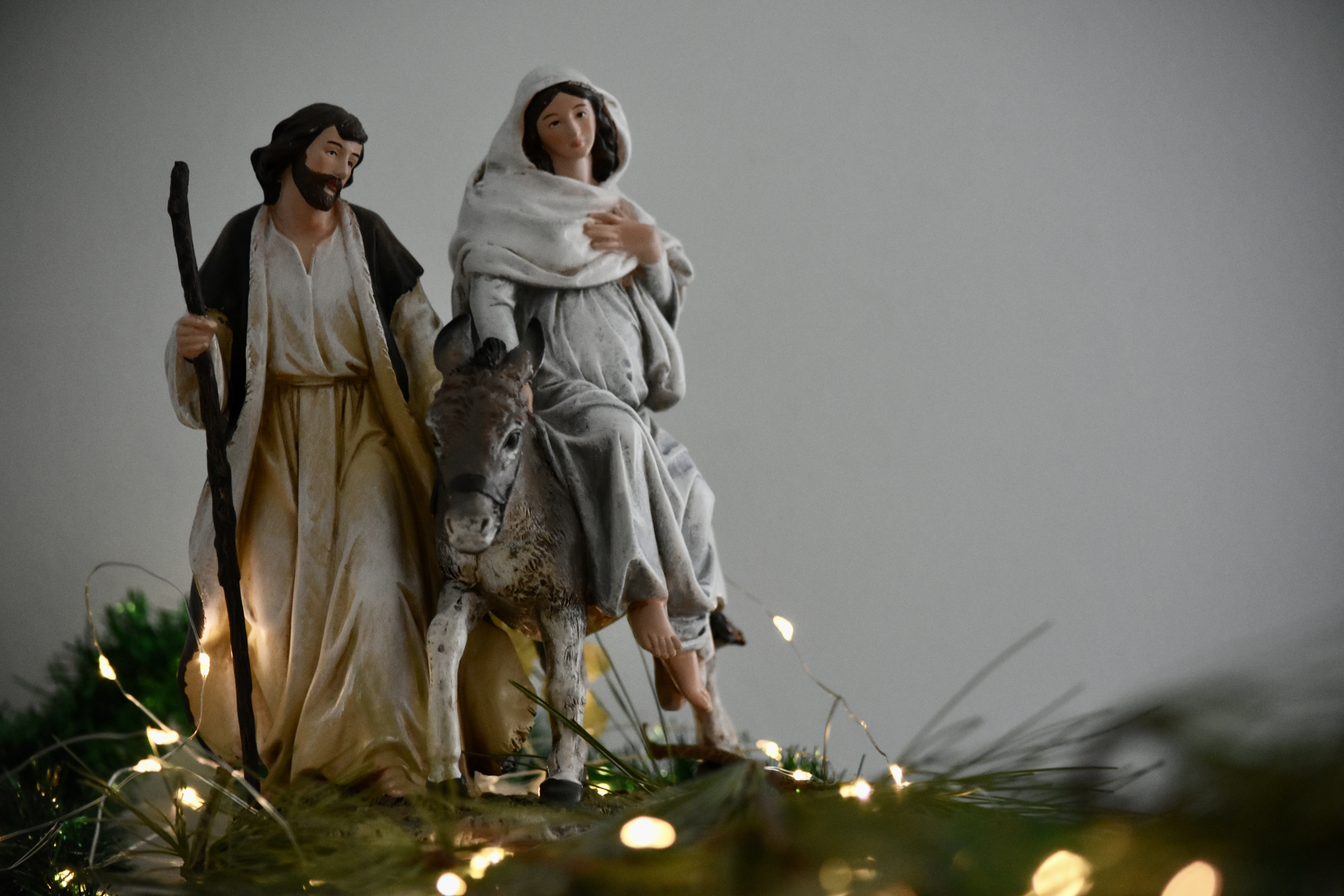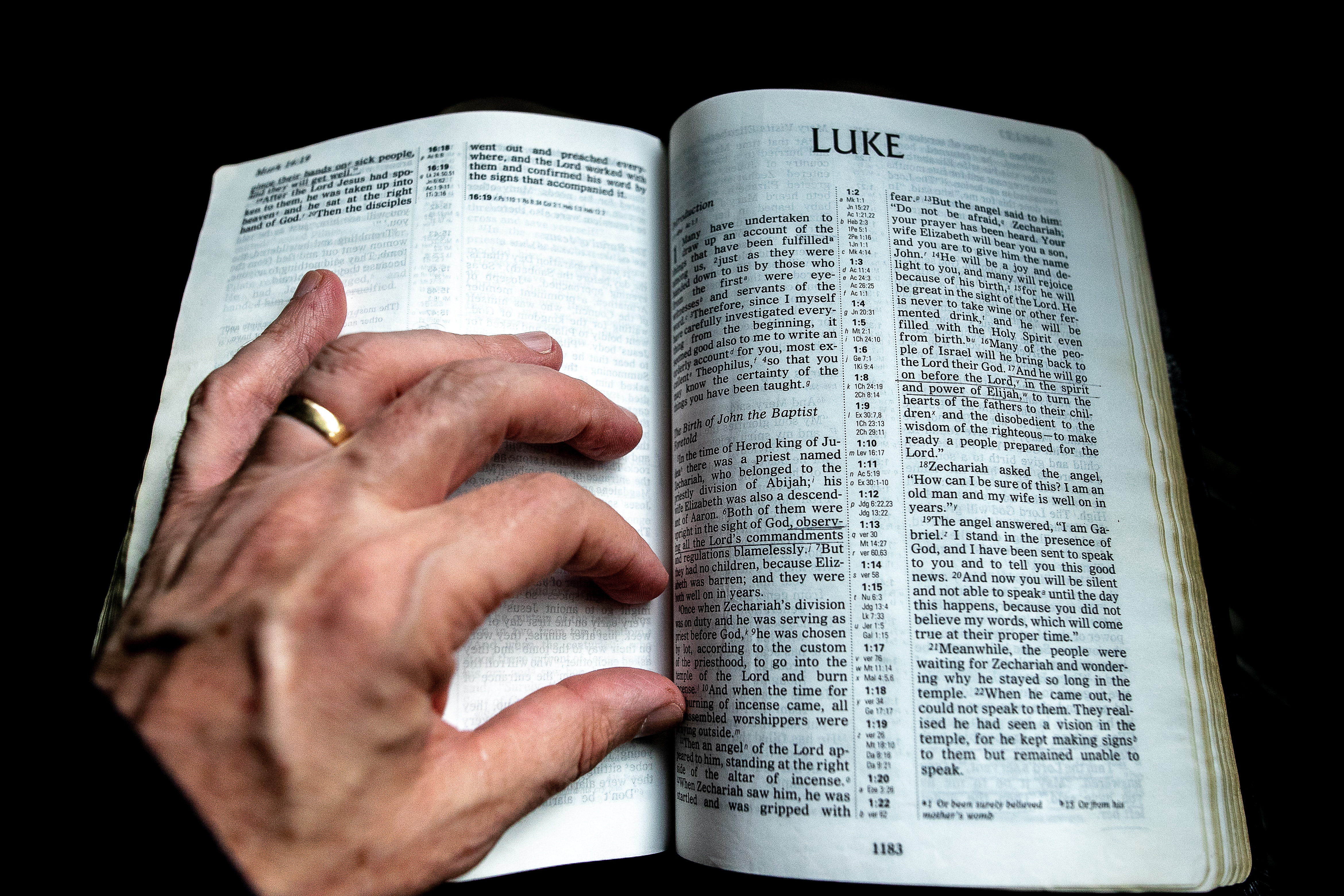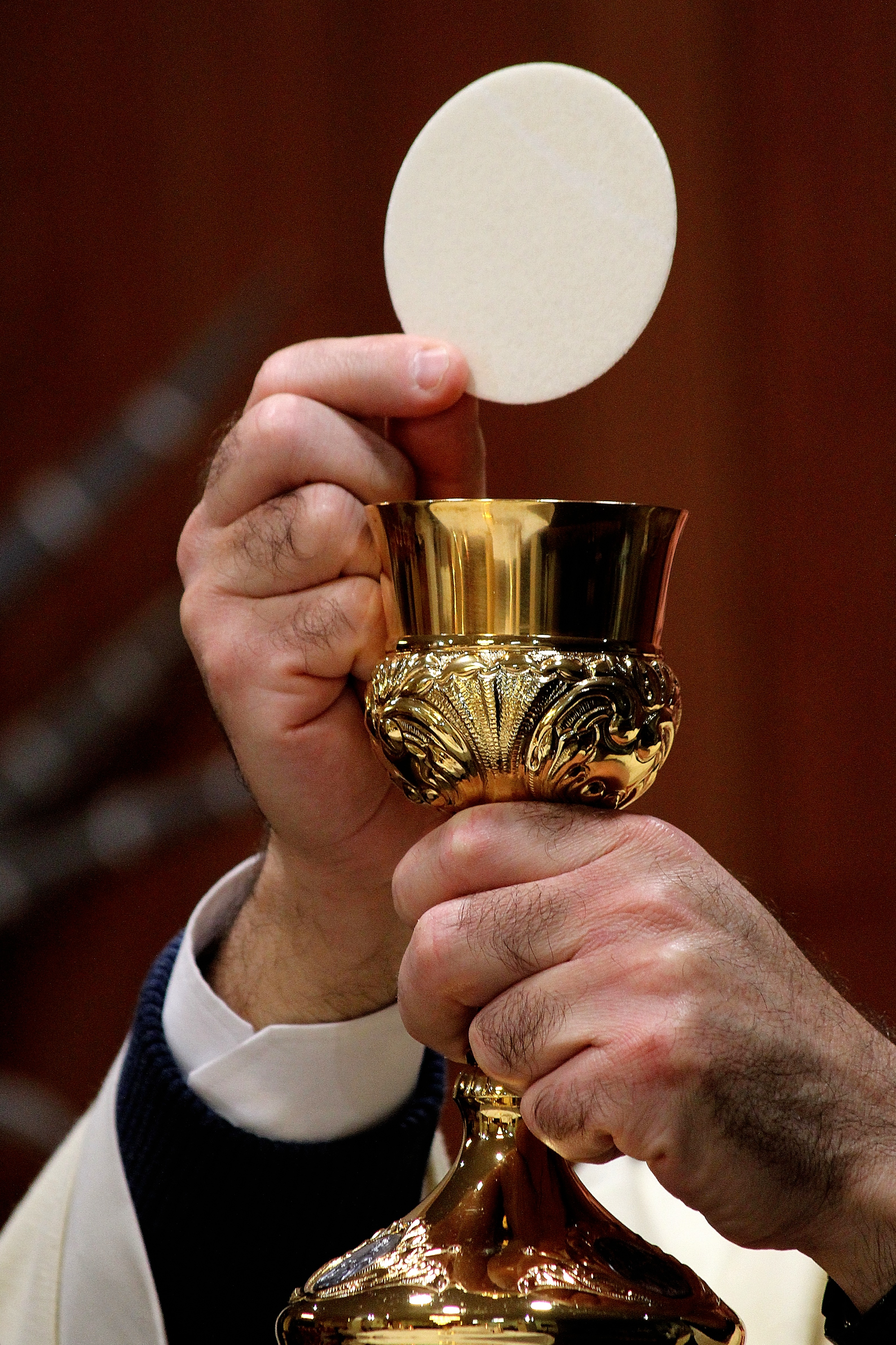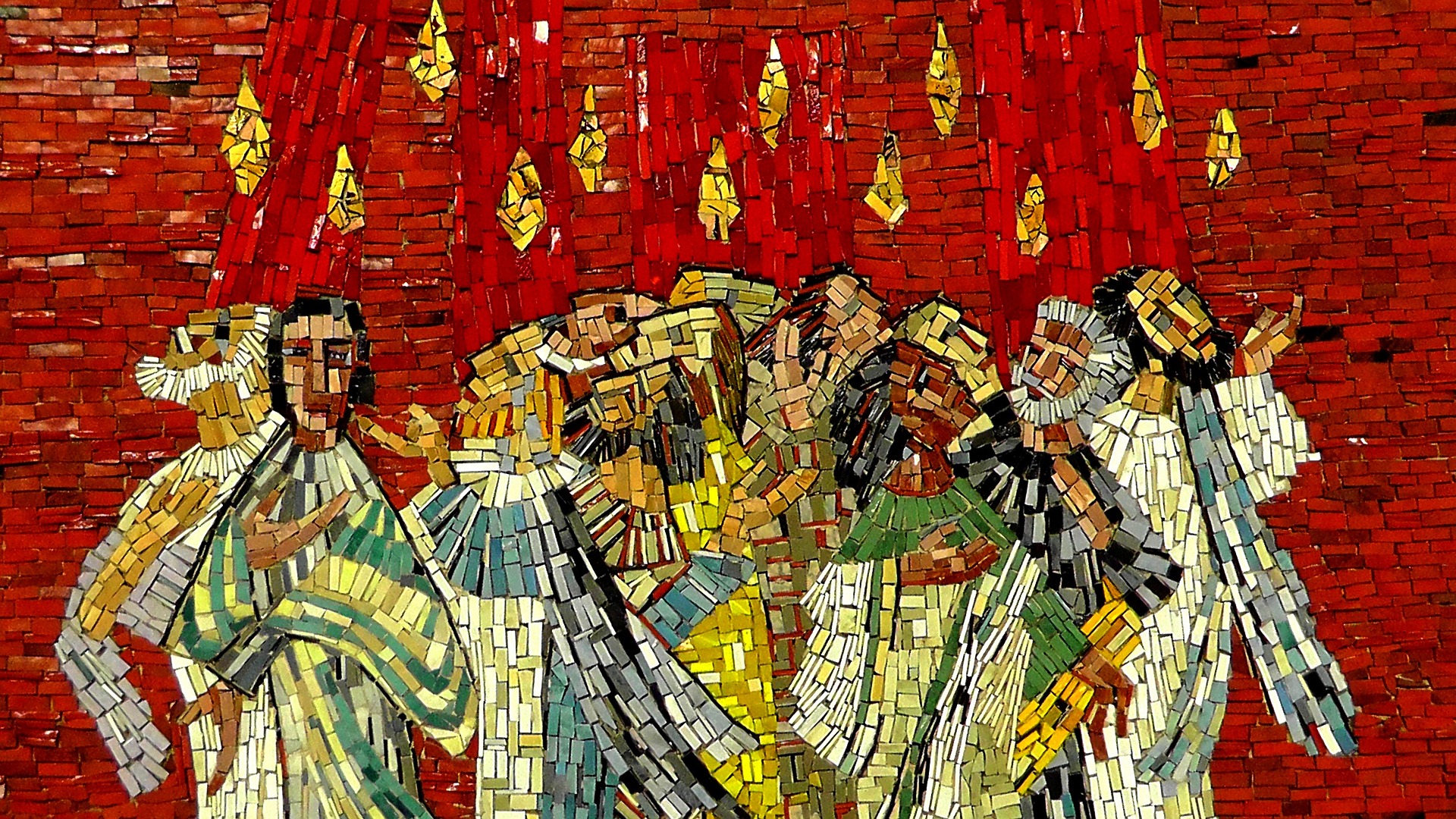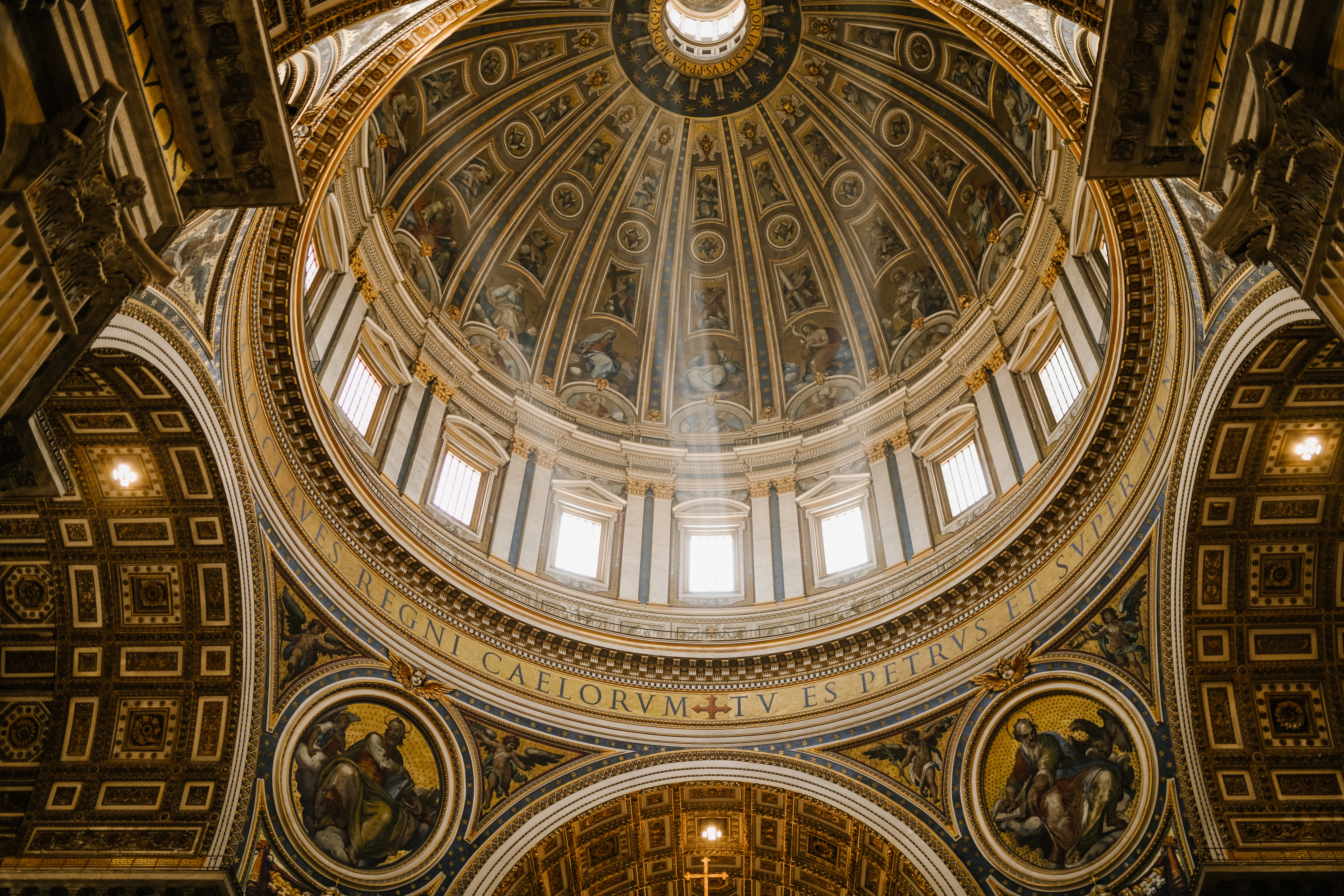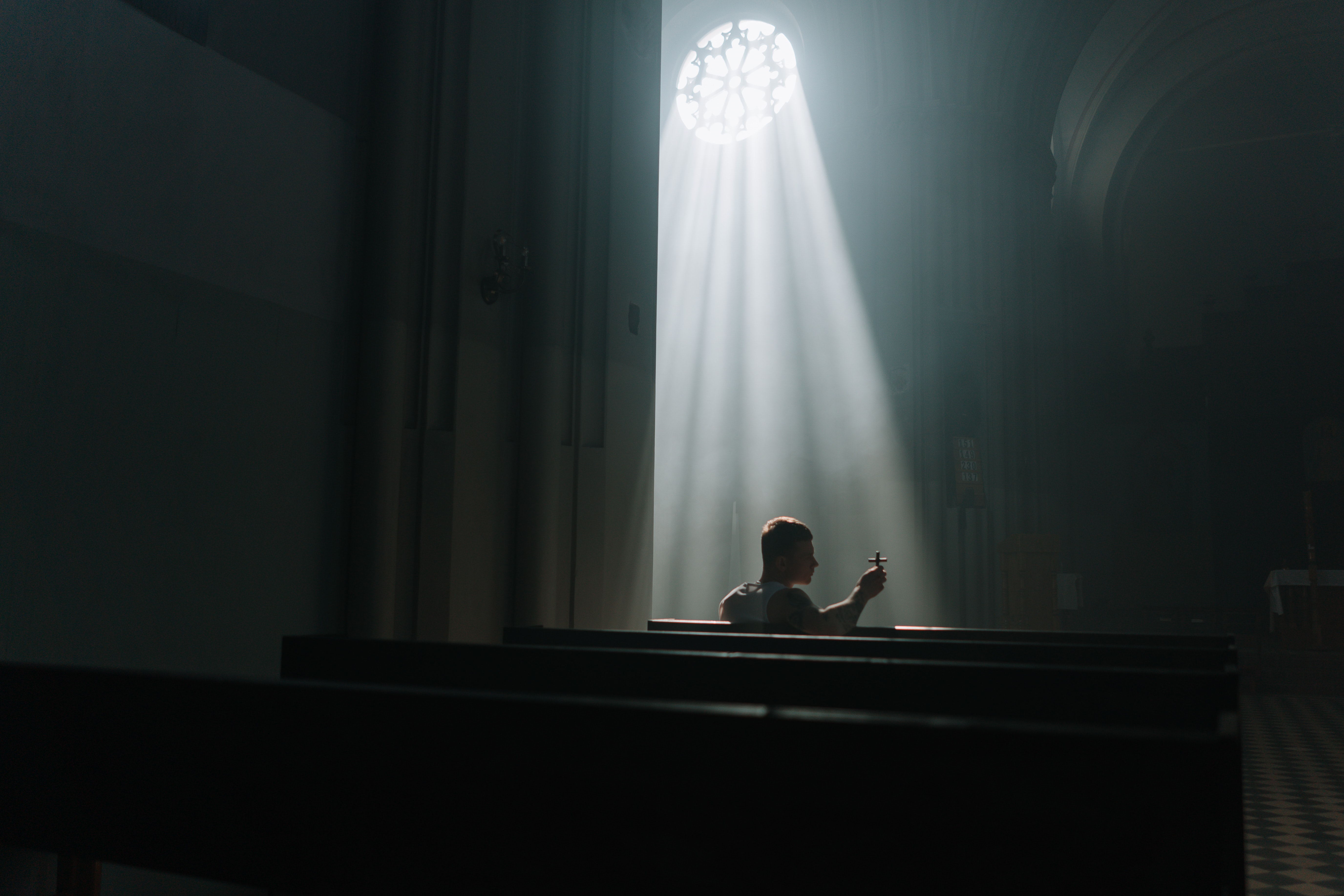A little research says a summer camp in North Carolina first celebrated “Christmas in July” 90 years ago, in 1933, and a comedic movie, “Christmas in July,” came out in 1940. Even earlier, an opera from 1892 has children rehearsing Christmas carols in July, to which one character says, “When you sing Christmas in July, you rush the season.” Yet the Hallmark Channel is happy to fill its July schedule with Christmas movies, and appliance stores are quick to advertise their “Christmas in July” sales.
But today our focus is on the readings just seven days before Christmas, where we as Christians have celebrated it for centuries. And with just a week of Advent to go, the readings really do a great job of honing in on just what Christmas should mean to us. In the first reading from Jeremiah, the prophet tells the people a righteous shoot will come from David, to reign and govern wisely, to do what is just and right. And he shall be called “the Lord our justice.” In today’s Gospel from Matthew, Joseph learns of two more names for this righteous shoot from David: Jesus, which means “to deliver,” and Emmanuel, which means “God is with us.” These are three powerful names that would do us well to reflect on a bit.
The Lord our justice: Jeremiah was speaking to a people who knew the descendants of David turned out to be a pretty poor batch of rulers. But Jeremiah’s message was one of hope and faith. God promised a descendant of David who would be just, who would do what is right, who would do the will of God.
Jesus: Matthew tells us Joseph also received a message of hope and faith from the angel. Mary’s child wasn’t just a mistake, the baby would be born because of God’s own Holy Spirit, and he would be a deliverer from our sinfulness, a man of action, and that action would not only be God’s will, but the fulfillment of God’s saving plan for those with faith.
Emmanuel: Matthew also quotes a name given to us by Isaiah, and it’s a name that indicates a very profound reality: God is not aloof, directing us from afar. He is with us. God loves us so much that it’s not a one-and-done deal. He wants to be with us, every day, every second. In December, In July and always. That is the beauty and joy of the miracle of Christmas. God loves us and wants to be with us. And He wants us to be with Him. We ask Him to increase our faith in order to take Him up on that.
Después de un poco de investigación descubrí que un campamento de verano en Carolina del Norte celebró por primera vez “La Navidad en julio” hace 90 años, en 1933, y una película cómica, “La Navidad en julio”, salió en el 1940. Incluso antes, una ópera de 1892 tiene niños ensayando villancicos en julio, a lo que un personaje dice: “Cuando cantas la Navidad en julio, aceleras la temporada”. Sin embargo, el Hallmark Channel está feliz de llenar su programación de julio con películas navideñas, y las tiendas de aparatos se apresuran a anunciar sus ventas de “La Navidad en julio”.
Pero hoy nuestro enfoque está en las lecturas de tan solo siete días antes de Navidad, donde nosotros, como cristianos, la hemos celebrado durante siglos. Y ahora que queda solo una semana de Adviento, las lecturas realmente afinan muy bien lo que la Navidad debería significar para nosotros. En la primera lectura de Jeremías, el profeta le dice al pueblo que de David saldrá un brote justo, para reinar y gobernar sabiamente, para hacer lo que es justo y recto. Y será llamado “El Señor es nuestra justicia”. En el Evangelio de hoy de Mateo, José se entera de dos nombres más para este brote justo de David: “Jesús”, que significa “liberar”, y “Emanuel”, que significa “Dios está con nosotros”. Estos son tres nombres poderosos sobre los que nos vendría bien reflexionar un poco.
El Señor es nuestra justicia: Jeremías le estaba hablando a un pueblo que sabía que los descendientes de David resultaron ser un grupo bastante pobre de gobernantes. Pero el mensaje de Jeremías fue uno de esperanza y fe. Dios prometió un descendiente de David que sería justo, que haría lo correcto, que haría la voluntad de Dios.
Jesús: Mateo nos dice que José también recibió un mensaje de esperanza y fe del ángel. El hijo de María no fue solo un error, el bebé nacería por el propio Espíritu Santo de Dios, y sería un libertador de nuestra pecaminosidad, un hombre de acción, y esa acción no solo sería la voluntad de Dios, sino el cumplimiento del plan salvador de Dios para los que tienen fe.
Emanuel: Mateo también cita un nombre que nos dio Isaías, y es un nombre que indica una realidad muy profunda: Dios no está al margen, dirigiéndonos desde lejos. Está con nosotros. Dios nos ama tanto que no es un trato de una sola vez. Quiere estar con nosotros, cada día, cada segundo. En diciembre, en julio y siempre. Esa es la belleza y la alegría del milagro de la Navidad. Dios nos ama y quiere estar con nosotros. Y quiere que estemos con Él. Le pedimos que nos aumente nuestra fe para aceptar Su invitación.
 Mike Karpus is a regular guy. He grew up in Michigan’s Upper Peninsula, graduated from Michigan State University and works as an editor. He is married to a Catholic school principal, raised two daughters who became Catholic school teachers at points in their careers, and now relishes his two grandchildren, including the older one who is fascinated with learning about his faith. He also has served on a Catholic school board, a pastoral council and a parish stewardship committee. He currently is a lector at Mass, a Knight of Columbus, Adult Faith Formation Committee member and a board member of the local Habitat for Humanity organization. But mostly he’s a regular guy.
Mike Karpus is a regular guy. He grew up in Michigan’s Upper Peninsula, graduated from Michigan State University and works as an editor. He is married to a Catholic school principal, raised two daughters who became Catholic school teachers at points in their careers, and now relishes his two grandchildren, including the older one who is fascinated with learning about his faith. He also has served on a Catholic school board, a pastoral council and a parish stewardship committee. He currently is a lector at Mass, a Knight of Columbus, Adult Faith Formation Committee member and a board member of the local Habitat for Humanity organization. But mostly he’s a regular guy.
Feature Image Credit: Susana Saldivar, cathopic.com/photo/24717-a-belen
